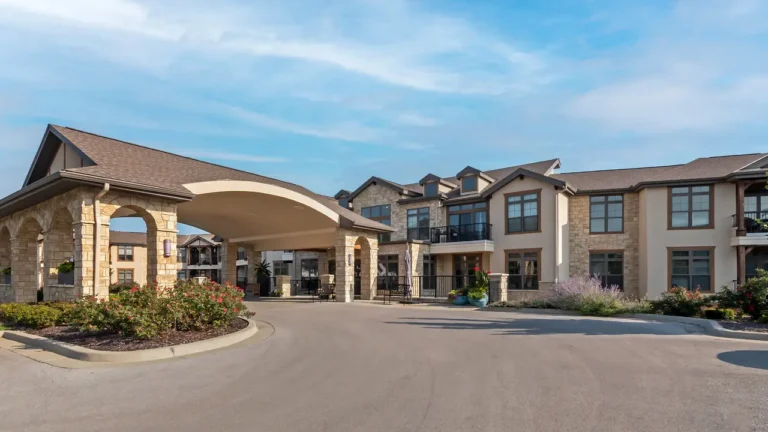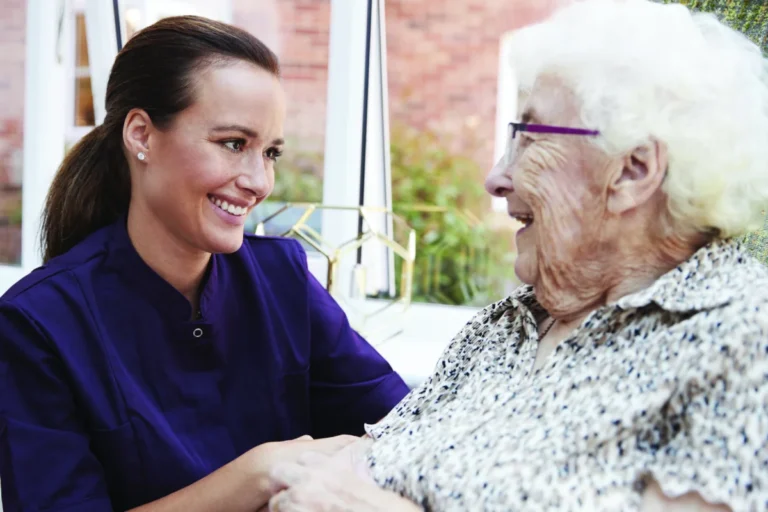The journey of caring for a loved one as they age is an often challenging experience. Seniors with dementia will reach a point where they can no longer live on their own. As time goes on, the dynamics of caregiving may evolve, presenting families with tough decisions, particularly when it comes to transitioning a beloved family member to a senior care community.
If you or your family members are grappling with this decision, this blog aims to provide insights, support and valuable information on recognizing the signs that it may be time to move your loved one to a senior care community.
Signs That It’s Time to Move
Recognizing the signs that it may be time to move a senior with dementia into a memory care or senior living community is the beginning of a number of decisions that you will make in this journey. There are several factors that indicate it may be time to move, and it’s important to remember that everyone’s journey will be different and occur at different times.
When searching for a memory care program, you will want to look for factors such as:
- Interaction with caregivers
- Daily cognitive and physical activities
- Employee training specifically for seniors with dementia
- Enhanced safety and security measures around the neighborhood
Thrive in the Courtyard is a signature memory care program at Tutera communities where seniors with dementia are cared for through compassionate memory care full of caregivers, nurses and team members specially trained in dementia care. When considering a memory care community, Thrive in the Courtyard is among the best care that you can give your loved one during this time.
Here are several signs to look for when considering moving your loved one into memory care:
- Safety and security: Seniors with dementia may start to wander or become confused about surroundings, and this presents a danger to themselves and others. In the Thrive in the Courtyard program, safety precautions are taken to ensure that your loved one is safe and secure within our community.
- Behavior concerns: Seniors with dementia may develop agitation and confusion, even anger at times. If living alone, this may be disorienting to them, and it may be time to seek help from full-time caregivers.
- Decline in cognitive abilities: Many seniors reach a point in their lives where they struggle with activities of daily living, such as housekeeping, bathing, dressing and cooking meals for themselves. When this happens, they often require 24-hour support through a compassionate memory care community.
- Socialization: Thrive in the Courtyard memory care and other memory care programs provide socialization opportunities, along with daily activity programming, to slow the decline of cognitive abilities in seniors with dementia. These interactions and programs establish a routine and help improve mood and quality of life.
- Need for full-time caregivers: Many families choose in-home care or family caregiving in the beginning of this process, but caregiver burnout can occur quickly, and these types of care may not be able to meet the full-time demands of caring for a senior with dementia. At this point, moving to a community like Tutera’s Thrive in the Courtyard memory care with 24-hour support from caregivers and nurses may be the right decision.
Moving Someone With Dementia
When you begin the process of looking for a new community for someone with dementia, you want to look for a neighborhood that offers compassionate memory care and safety and security measures. It’s a difficult transition for most people, so here’s how to mitigate the effects of moving someone with dementia:
- Involve your loved one in the planning process: Make sure that you involve your loved one in the decision-making process. Moving out of their home that they have spent so much time in is often a very difficult cognitive process, and in a way, they’re giving up some of their independence. As much as possible, ask for their preferences and needs in a new home, and try to grant those wishes as much as you can.
- Plan ahead: Once you start preparing for the move, start with the basics. Create a checklist of items to take, store or donate. Your loved one will be moving into a smaller space than they were previously in, so this is the time to sort through all of their items that they may not be taking with them.
- Keep things familiar: Certain items, such as a favorite quilt or framed photos, may hold special significance to someone with dementia. Make sure to pack these and unpack them first to start making the new space feel more familiar. This will start to ease some of the anxiety that comes with moving to a new home.
- Stay positive: Selecting and moving into a senior care community can be a lengthy process, so keep your mindset and attitude as positive as possible during all decision-making. Your loved one can pick up on your emotions and mental state, so do your best to make it an easy and comfortable transition.
Tutera Communities and Thrive in the Courtyard Memory Care
Tutera’s signature memory care program, Thrive in the Courtyard, offers endless benefits for seniors with dementia. With a team of compassionate caregivers and a special emphasis on safety, security and comfort, Thrive in the Courtyard provides a warm, welcoming environment that meets all the needs of residents with dementia.
Remember that each person with dementia is unique, and what works for one individual may not work for another. Flexibility and patience are key during this transition period. If possible, seek guidance from health care professionals experienced in dementia care to ensure the best possible outcome for the person moving and their caregivers.
Ready to learn more about Thrive in the Courtyard? Our memory care specialists look forward to answering your questions. Find out more about Tutera communities here.







